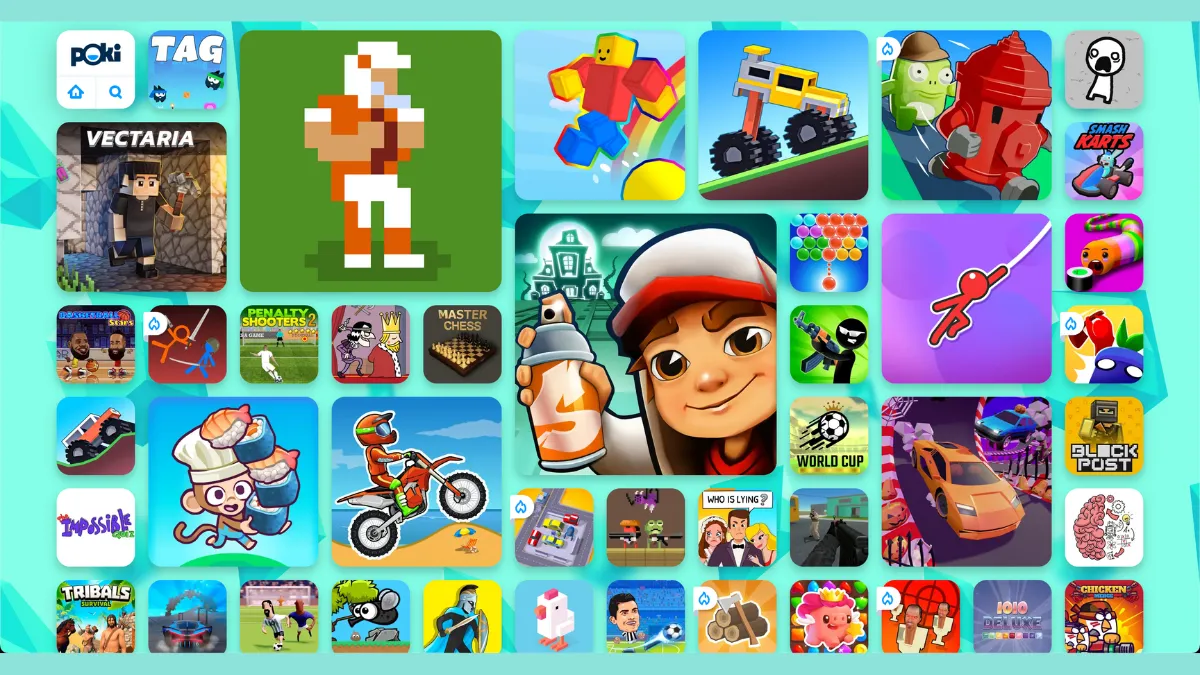
In today’s world, the dynamic development of technology, changes in economic processes and globalisation are creating new challenges for the labour market. The question of which professions will remain relevant in 2030 is becoming increasingly important for young people, parents and professionals seeking to choose the right direction for their development.
Given the latest trends, such as automation and digitalisation, many traditional professions are changing or disappearing altogether. Instead, new industries are emerging that will require unique skills, knowledge, and adaptability.
For example, in the online casino industry, where promotions such as free spins not on Gamstop are offered, it is becoming important to attract and retain customers, which requires an understanding of the latest marketing strategies and technologies.
Artificial Intelligence and Big Data: The Basis of Future Professions
The role of artificial intelligence in the creation of new professions
Artificial intelligence (AI) is transforming all areas of activity, from industry to medicine. Thanks to its ability to automate routine tasks and analyse large amounts of information, AI is already creating demand for professionals with new specialisations. Analysts, data engineers, machine learning algorithm developers, and AI ethicists are becoming an integral part of the modern labour market.
In addition to new positions related to the development and improvement of algorithms, positions are emerging to manage automation processes at the business management level. For example, the role of Chief Automation Officer is becoming increasingly popular among companies planning to integrate automation into their operations.
Given the predicted development of technology, those wishing to work in this field should understand the basics of computer science and algorithms, know programming languages (e.g. Python and R), and have skills in data analysis and machine learning models.
Health and Biotechnology: Prospects for Future Medical Professionals
Exponential growth in the need for biotechnologists and geneticists
Biotechnology and medicine is another area that is undergoing rapid development. Every year, the need for specialists capable of working with genetic material, developing the latest treatments, controlling the spread of diseases, and introducing innovations in the healthcare sector is growing. Areas such as genetic engineering, nanomedicine and bioinformatics are gaining popularity and creating demand for specialists with a wide range of skills.
Of particular importance will be the demand for geneticists, bioengineers, DNA analysts and developers of personalised treatments. In addition, the medicine of the future will require specialists who are able to use computer technology to diagnose and monitor patients’ conditions from a distance. This requires not only medical education but also basic knowledge of information technology.
Renewable Energy: Eco-Engineers and Resource Analysts
Prospects for the development of green professions
As environmental challenges grow, humanity is actively moving towards renewable energy, reducing the use of fossil resources and implementing green technologies. This creates a need for new professions, such as eco-engineers, energy-saving technology specialists, and resource management specialists. In the future, they will become the leaders of eco-technologies, working to create effective solutions for the sustainable development of the planet.
A successful career in this field requires in-depth knowledge of engineering, an understanding of environmental principles, and project management skills. Areas such as the design of solar and wind installations, hydrogen energy, and alternative fuels will continue to gain popularity. It can be expected that in the coming years, specialists who can help make the transition to green energy sources will be in high demand.
Creative Economy: New Roles in The Arts and Entertainment
Why creative professions are becoming more important
With the development of media, advertising, and digital technologies, the demand for specialists in the creative economy is growing. Creative professions, such as designers, animators, virtual reality developers, and digital marketing experts, will be key to the future economy. The entertainment and visual arts industry is actively using the latest technologies, so creating content for various platforms, from social media to virtual shows, will require new skills.
Digital design, 3D modelling, interactive content creation, and personalised advertising will become the basis for creative economy jobs. It is important to note that jobs in this area will require an understanding of the latest technologies, big data, and basic programming knowledge.
Educational Technologies and E-Learning: The Future of Pedagogy
The role of digital technologies in the development of education
With the development of digital technologies, not only the approach to learning is changing, but also the professions in the field of education themselves. E-learning, online courses, and virtual classrooms are creating a new format for the educational process, and with it comes a demand for professionals who can develop, implement, and support educational technologies. Professions such as learning content developers, curriculum designers, and learning data analysts are gaining popularity.
Skills in working with various online learning platforms, the ability to create interactive content and manage distance learning projects will be key for professionals in this field. Given the rapid development of technology, such specialists will help create individualised educational plans that meet the needs of each student. In addition, professions in the field of educational technology open up career opportunities not only in schools and universities, but also in private training centres, the corporate sector, and IT companies.
Social Sciences and Psychology: Demand for Mental Health Professionals
The growing importance of mental health in modern society
In the modern world, there is a growing focus on mental health issues, which creates a demand for specialists in psychology, social sciences and therapy. Mental health professionals, such as clinical psychologists, therapists, and social workers, help people adapt to life’s challenges, provide support, and offer solutions to psychological problems.
In addition to the traditional areas of psychology, new roles are emerging: for example, psychologists specialising in virtual therapy programmes or cybersecurity specialists who work to prevent psychological pressure in the online space. In the field of mental health, specialists in counselling psychology, emotional resilience coaches and conflict mediators will be in demand, especially in the field of online interaction. Keep in mind that for these specific professions, you’ll most likely need a master’s degree in psychology.
Cybersecurity and Data Protection: Professions in The Digital Age
Relevance of information and privacy protection
Given the rapid development of digital technologies and the increasing number of online services, cybersecurity is becoming one of the main areas of focus for professionals. The issues of personal data security, protection of confidential information and prevention of cyber attacks are important for all industries that work with information systems. Cybersecurity specialists, security strategy developers, risk analysts and ethical hacking specialists are becoming more and more necessary in the labour market.
Cybersecurity requires knowledge in programming, network management, data analysis, and cyber defence. In addition, understanding the basics of cryptography, experience with encryption systems, and the ability to identify potential threats are key skills needed to work in cybersecurity. It is important to note that cybersecurity professionals will be in high demand in the private sector, as well as in government agencies, banking, and international organisations.
Change Management and Business Intelligence: New Approaches to Management
Change adaptation skills as a key value
In a fast-paced world, the ability to manage change is becoming an integral part of any organisation’s success. Modern business needs professionals who are able to assess new challenges, implement strategic changes, and ensure that the team adapts to new conditions. Positions such as business analyst, change management manager and innovation specialist help companies remain competitive in the market.
Critical thinking skills, analytical skills and a deep understanding of organisational processes are essential for a successful career in this field. Working with big data, knowledge of forecasting methods, and experience in project management allow business analysts to accurately assess risks, efficiently use resources, and ensure the stability of the organisation in the face of uncertainty.
Combining Education and Online Casinos

The combination of education and online casinos may seem atypical, but there are actually several ways in which these two areas can interact to open up opportunities for learning, skill development, and financial literacy. Here are the main aspects of how education can integrate into the online casino world:
- Financial literacy and risk management;
- Creation of educational simulations based on game mechanics;
- Training in programming and game development;
- Research and data analysis as the basis of modern education;
- Platforms for interactive learning and knowledge testing;
What the future holds for online casinos
The future of online casinos promises to be interesting and dynamic, as technologies are rapidly evolving and player expectations are changing along with them. Here are the main trends that will influence the development of this industry in the future:
Artificial intelligence and personalisation
Artificial intelligence (AI) will continue to play an important role in personalising the online casino experience. By analysing player behaviour and preferences, AI algorithms will help to create individual offers, bonuses, and recommendations. As a result, each user will receive a unique experience tailored to their playing style and interests.
Virtual reality (VR) and augmented reality (AR)
Virtual reality and augmented reality can completely change the experience of playing in online casinos. There are already VR casinos where players can interact with the virtual environment and feel like they are in a real gambling hall. In the future, the use of VR and AR may become more accessible, making such games more realistic.
Expanding mobile gaming opportunities
Mobile devices are becoming the main platform for gaming, and online casinos are adapting to this trend by developing user-friendly applications with a wide range of features.
Cryptocurrencies and blockchain
Cryptocurrencies are already playing an important role in the online casino industry, and this trend will continue to grow. Through the use of cryptocurrencies such as bitcoin or ethereum, casinos can provide greater transparency, privacy, and fast financial transactions.
Popular Online Games
Sweety Win
Sweety Win Casino is a great option for anyone looking for a reliable and enjoyable online casino.The platform offers a large selection of games from reputable and long-standing casino game developers.
Advantages:
- Large selection of games;
- Generous welcome bonus for new players;
- Round-the-clock customer support available via live chat and email.
Orion Spins
Orion Spins is one of the best new online casinos in the UK.The space-like background image immerses users in a cosmic atmosphere, complete with the brand’s logo featuring stars and planets.Orion Spins Casino offers a variety of sports betting options for those looking for a break from online casino games. By heading over to the Sports section, players can choose from a variety of popular sports and take part in predicting match results in both local and global championships.
Advantages:
- Generous welcome offer;
- Accepts bitcoins;
- A large number of games;
- Round-the-clock customer support.
Conclusion
Key recommendations for young professionals
Given the rapid changes in the economy and labour market, it is important to choose professions that will be in demand in the future. Studying areas such as artificial intelligence, cybersecurity, biotechnology, and renewable energy can be a promising choice. Recommended:
- Develop technical skills in programming, data analysis and digital technologies.
- Learn new languages, including programming languages, to work with different technological solutions.
- Pay attention to management skills, critical thinking and adaptability.
- Monitor global trends and new technologies that may change the labour market.
With in-depth knowledge of promising areas and a flexible approach to change, young people will be able to succeed in the professions of the future.


